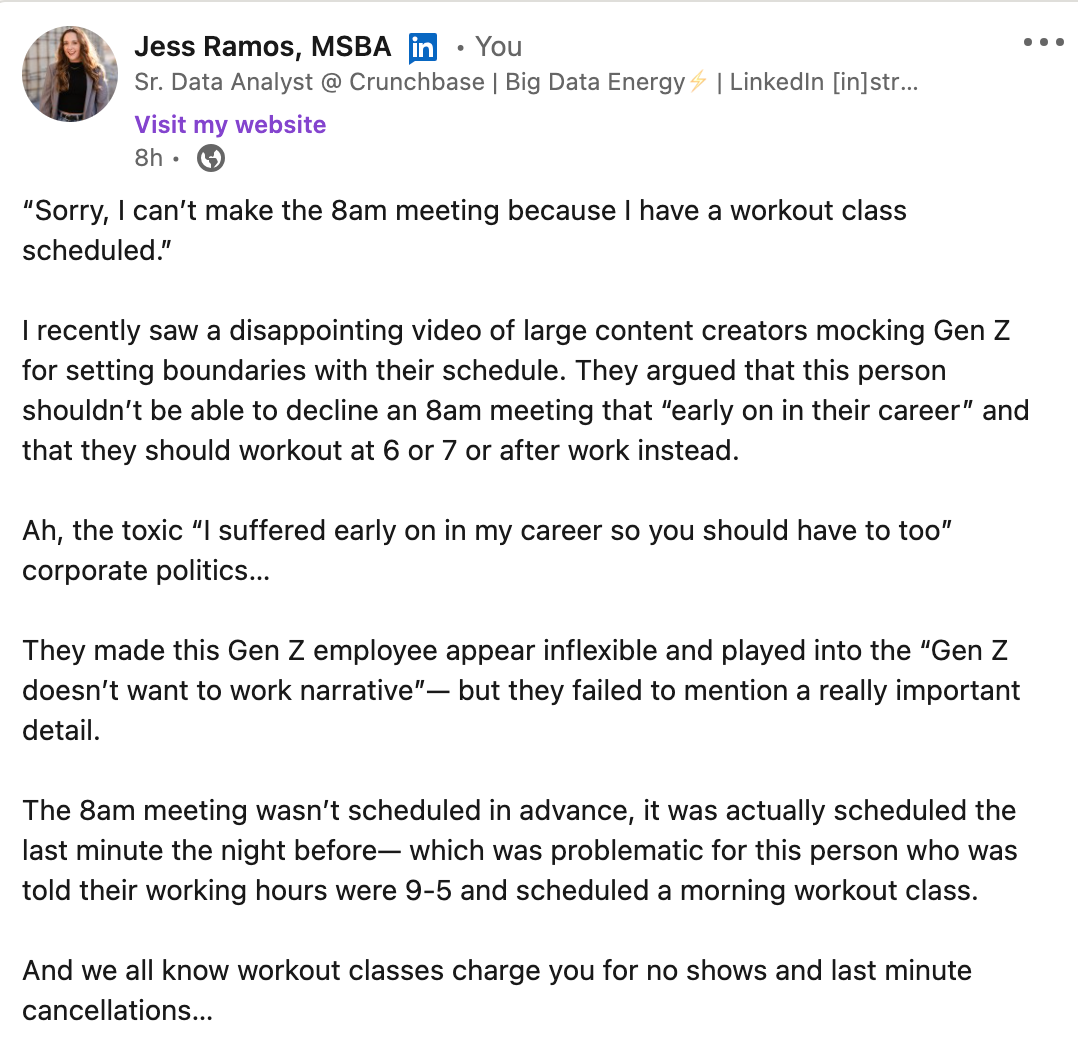5 Tips to Ace your Technical Interview for Data Science or Analytics🤓
How to stand out in a live coding or a take home assignment
Got BDE?⚡️
Hi BDEs! Today we’re talking all about how to ace your technical interviews for data science & analytics!💪🏼
Be sure to check out the Dataset of the Week and project at the end😎
Social Highlights⚡️



5 Tips to Survive your Technical Interview⚡️
Practice.
It sounds really silly and obvious, but practice not only coding new problems but also explaining them out loud. The more you practice coding, verbalizing your thought process, and explaining what you’re doing, the more natural it’ll feel when you do the real interview. Here’s a few places you can practice your coding skills:
Your own IDE, I use DBeaver🔗 for SQL & Jupyter Notebooks in Anaconda🔗 for Python
Real Interviews— the best way to really practice is to do real live coding interviews! It’s okay if they don’t go as planned. Learn, iterate, and try again!
Communicate.
Verbalize everything you do and why. Technical interviews aren’t JUST to assess your coding skills. They’re also to see how well you understand what you’re doing and can communicate it. Never stay silent in a coding interview! Make sure you’re walking the interviewer through all of your decisions and thoughts. This also ensures that you’re on the right path and gives them a chance to intervene if needed.
Ex. “Now I’m going to do a LEFT join here so I don’t filter out any rows of the X table that don’t have a match in the Y table.”
Ask Questions.
Yes, you’re expected to ask questions and not just pump out code like a robot (or should I say like ChatGPT😉). Asking questions shows the interviewer how you think and collaborate. Do you jump right in and start coding or do you ask clarifying questions to make sure you really understand the problem and data? The second will help you stand out. Asking questions is also a great way for YOU to interview THEM! You want to see how they respond to questions and answer them. If they’re not willing to, they probably won’t be great to work with, and it may be a red flag!
Ex. “Is this the primary key of the table? Can I assume all IDs in X table are also in Y table? Where did this data come from?”
Address any limitations, assumptions, or next steps.
Address any limitations you see in the data or problem, any assumptions you’re making about the company or data, and any next steps you’d love to be able to take if you were offered the position😉 This is deeper-level thinking that shows that you can solve problems without ignoring important details. It also shows that you’re able to iterate and think about how to improve the work in the future! I always think about these 3 things every time I do a coding interview or take home assignment.
Limitation Ex: “I noticed that we’re not able to track column X for anonymous users, so we’ll have to note that in the final analysis.”
Assumption Ex: “I’m assuming that all products follow the same payment workflow. Let me know if that’s incorrect.”
Next Steps Ex: “If I were to continue on this project in this role, I’d love to use wildcards to determine the most popular website pages using the URLs.”
Always point back to the Business!
When working through a live coding problem, think about the business domain. What business question are you trying to answer and why does it matter? Show that you’re thinking about the business impact and not just about solving that one problem. If you’re not sure, ask about it! Asking questions goes a long way. When you get the final answer provide your thoughts and what you might recommend to the business or team. Many people forget to include business skills in their interviews.
Ex. “Since most subscriptions originate from a free trial, I’d definitely start to look into why this is and perhaps reduce friction to start free trials. This would help us encourage more trial starts!”
Technical interviews (and take home assignments) can be really daunting and even traumatic if they don’t go well. (Hey, I’ve been there too!) But I promise you can do it! It just takes lots of practice and confidence-building. Use these 5 tips to be best prepared and stand out!
Let me know your thoughts on this article & how I can improve my newsletter.
Dataset of the Week⚡️
This week’s project & dataset of the week is… 🥁🥁🥁
Keep reading with a 7-day free trial
Subscribe to Big Data Energy⚡️ to keep reading this post and get 7 days of free access to the full post archives.




